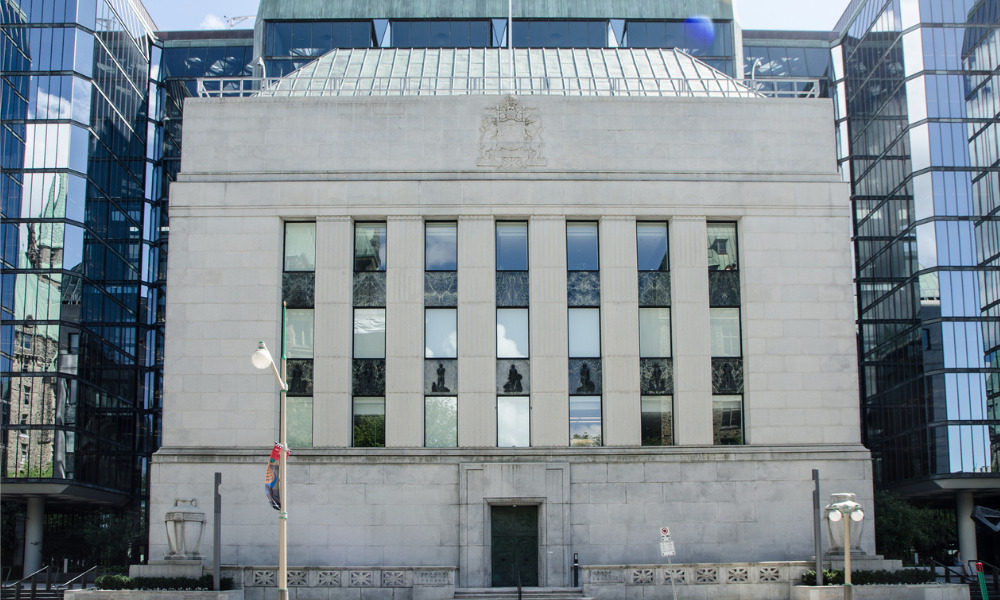Money markets now forecasting interest rate cuts by July

Concerns over inflation continuing to rise beyond its 2% benchmark led the Bank of Canada to suspend its effort to tighten monetary policy on March 8—becoming the first major central bank to do so. The bank kept rates at 4.5% this month, as was to be expected, and promised to refrain from raising them further if inflation continued to decline as projected.
The bank predicted in January that inflation would slow to 2% the following year and ease to 3% around mid-year. However, according to the minutes from the policy-setting meeting that were posted on Wednesday, the danger that inflation may become "stuck materially above the 2% target" continues to worry the five-member governing council.
The bank highlighted that services inflation "is proving sticky" during discussions before the announcement. Yet all five members supported holding interest rates unchanged to assess the effects of earlier rises, agreeing that "the economy is slowing, and inflation is coming down."
To control inflation, which peaked at an annualised rate of 8.1% last year and eased to 5.2% in February, the bank hiked rates eight times in a row for a total of 425 basis points over the previous year.
According to the minutes of the meeting, "After increasing the policy rate at each of the last eight decisions, Governing Council saw the pause as an opportunity to learn whether interest rates had increased enough to return inflation to the 2% target."
Since March 8, when money markets were speculating that the Bank of Canada's next action would be another interest rate hike by September, the situation has drastically shifted. They are now placing a wager that a cut will occur by July.
Bank failures in the US and Europe demonstrate the dangers of raising rates too high, leading to greater financial instability, and supporting Canada's ongoing rate freeze.
The council makes decisions about policies by consensus rather than by voting.
Meanwhile, for Bay Street read Wall Street. According to a Bloomberg report, experienced finance professionals are warning investors who follow the market’s bet that the central bank will soon be cutting rates, to be careful what they wish for.
Even after Fed Chair Jerome Powell said it would not reverse course, the stock market largely ignored that message, rallying Thursday on expectation the central bank will start pumping stimulus into the economy during the second half of the year. The gains were led by fast-growing technology companies that were hammered in 2022.
The gains dissipated later in the day, however, and the scale of the cuts being priced into the market suggest a recession is on the horizon. “Rate cuts would actually be negative for the stock market,” said Todd Sohn, managing director of technical strategy at Strategas Securities. “It’s cuts that get stocks and especially growth corners of the market in trouble, with the most glaring recent examples being 2000 and 2008.”



